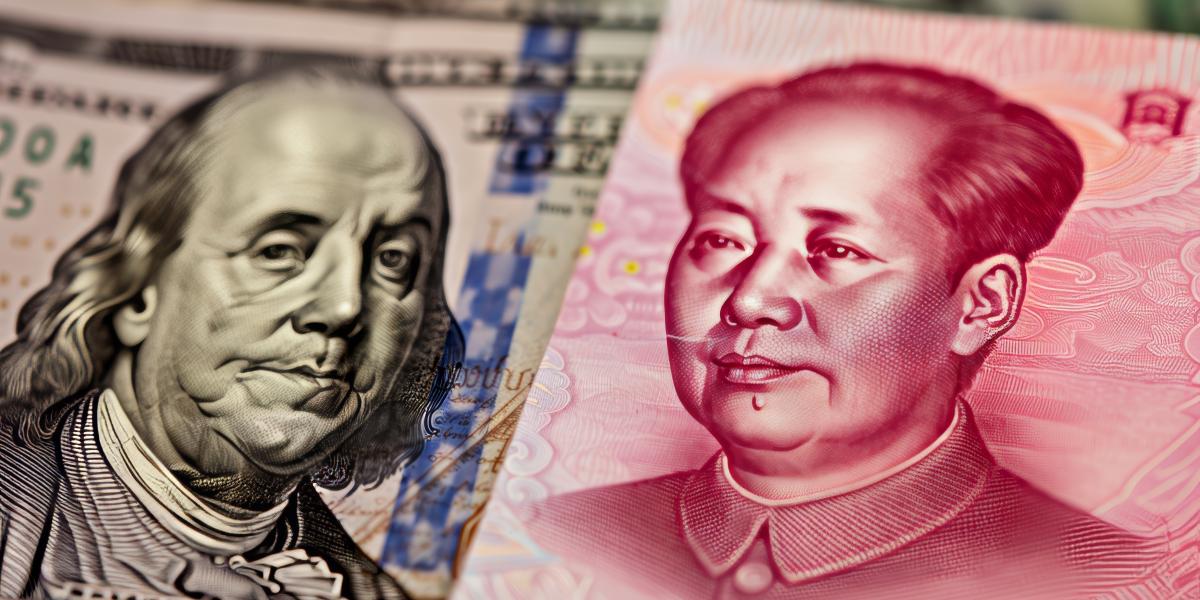


Donald Trump’s coming trade war with China could ultimately topple the current US economic regime of monetary inflation which enables America’s bubble-monopolist capitalism. The road, though, is unlikely to be direct or smooth.
Some trade warriors argue that the economic war with China will improve the prospects for US prosperity by stimulating onshoring of industrial activity. Critics argue that, in so far as onshoring occurs there is likely to be a loss of productivity. Some warriors are optimistic about a spontaneous simultaneous rise in US productivity – whether due to US-led technological progress or radical deregulation coupled with cutting government waste. It’s possible, yes, but it’s nowhere near certain with grounds for skepticism beyond the scope of this article.
There is a zig-zag alternative. US trade war with China could ultimately bring a substantial rise in US living standards, but most likely not directly, ss the trade warriors hope. Rather success would come via a winding route along which two related brakes on US prosperity – monetary inflation and easy-money-fueled monopoly power – become less powerful. For this to happen, though, economic disappointment would come first.
The operation of these brakes on prosperity over such a long period to date – three decades or more – helps to explain the sourness of voters about the economy as expressed in election day exit polls. Understandably voters do not equate the meaning of prosperity with an unemployment statistic or with the Federal Reserve celebrating that it might fulfil its dual mandate soon after years of huge misses.
Think about how much sourer the voters could become if the palliative of cheap imports fades and no offsetting advantages emerge. Yet if those monetary and monopolist brakes to prosperity remain in place, that could well be the case.
Monetary Inflation Destroy Prosperity
Perhaps, at last, a new and powerful message would emanate from the political arena under those circumstances. It remains an open question from what side of the aisle that message is most likely to enter the political arena. A key content of that message: the culprit is a deeply flawed monetary regime which has corrupted the course of the digitalization revolution.
Desperation for yield under monetary inflation has fueled speculation in a small number of tech firms has facilitated monopolization. Also, the huge excitement as evident in the spread of speculative narratives stimulated the headlong rush to implement digital innovation ahead of deep flaws emerging, most strikingly and profoundly regarding issues of security. De-digitalization is infeasible and too costly at that point of realization especially given the extent of networking effects.
The zig zag route to an ultimate exit of the economy from these hindrances to growing prosperity could pass through an apparent dead-end. As illustration, the non-arrival of the promised miracle economy and dimming of the political outlook for the Republicans in coming years could mean Washington negotiates an early trade peace with Beijing. Cheaper imports from China coupled with a further dose of monetary “stimulus” could bolster the feel-good factor ahead of the next election.
Decades of Malinvestment Gave Us Today’s Poor Economic Growth
Malinvestment, the illness which has enfeebled the economy during the past three decades of asset inflation, would become even more severe. But such a long-run consideration transcends electoral arithmetic.
The source of malinvestment is asset inflation’s corruption of price-signaling in capital markets. The allocation of capital becomes deeply inefficient. Technological revolution, driven by vast speculation and the lure of monopoly, pursues a wild and unbridled path into the forest of the unknown. Only much later the giant flaws become apparent which might have been tamed or averted if the “checks and balances” of well-functioning markets under sound money had been operating properly. Such wildness and lack of foresight has been the story of the digitalization revolution through the past three decades.
The resulting poor growth in living standards by comparison with previous periods of technological revolution has fueled populism. Growth would have been even more anemic if it had not been for the extent to which US consumers benefited from the regime of economic and political repression in China.
The advantages to US consumers as delivered by Chinese repression have developed in an accommodating macro-economic environment. Chinese individuals, in view of low and dubious returns from the banking system and without social insurance or pensions, save at abnormally high rates.
Low consumption propensities in China have a counterpart in massive Chinese export surpluses of goods and capital together with an ostensibly weak yuan. Financial repression includes restrictions on Chinese citizens investing abroad but there are so many workarounds, most of all now, crypto. By contrast, imports of capital into China are weak in the present context of economic war and post-bubble depression.
In the counterfactual alternative, reality of dawning economic and political freedom, the Chinese capital account would likely strengthen dramatically. Real investment opportunity would blossom as would profitable financial intermediation. The yuan would rise far. Real wages would climb faster. All of this would undermine the present model of US middle classes gaining relief from Chinese financial repression for, at best, weak domestic generation of prosperity.
